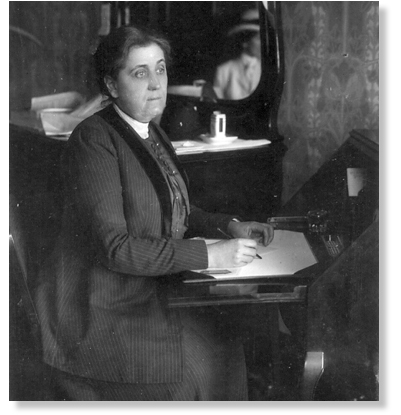Jane Addams

Chicago was in a desperate condition in the late 1800s. Horses, the most common form of transportation, filled the streets with waste and refuse. Large immigrant populations living in the city often did not speak English and were unable to get jobs. Those able to find work generally toiled long hours in sweatshops for pennies a day. Their housing was just as inferior as their working conditions. Four or five immigrant families frequently occupied homes that were designed for one family. Into this seemingly hopeless situation strode a most unlikely hero.
Jane Addams’s well-to-do background had enabled her to attend good schools and travel to Europe after she graduated. While she was in England, she visited Toynbee Hall, a settlement house in which educated people lived among the poor and tried to improve their situation. Addams wanted to do the same for the people of Chicago. Her ideas created conflict with her family because women of her social status were not supposed to have careers. Still, Addams resolved to use her inheritance as she thought best.
Addams and her friend, Ellen Gates Starr, opened Hull-House in 1889 in Chicago. It became one of the first settlement houses in the United States. Despite meeting with initial criticism, Hull-House eventually expanded from one building to 12. By 1900, Addams’s ideas had taken off, and there were more than 100 settlement houses in the United States.
Hull-House ambitiously offered immigrant families everything from a place to have social gatherings to instruction on homemaking skills. Volunteers taught immigrants to speak English and helped with job searches. Classes were taught in art, music, and theater. When Addams learned that immigrant children were left unattended at home while their parents worked, she opened a kindergarten.
Addams’s influence soon stretched around the globe. During World War I (1914–1918), she advocated for a peaceful alternative to war. She wrote the book Newer Ideals of Peace, served on the International Congress of Women, and was the president of the Women’s International League for Peace and Freedom. For her focus on peace, Addams was awarded the Nobel Peace Prize in 1931. Her lifelong commitment to help and fight for those less fortunate makes Jane Addams an American role model and one of our nation’s great citizens.
